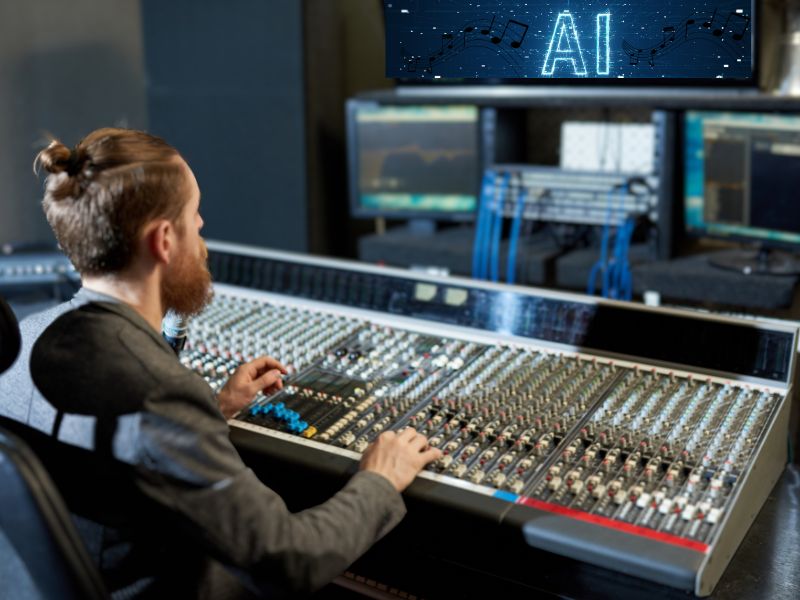The world of music composition is undergoing a seismic transformation thanks to the integration of artificial intelligence. What was once the sole domain of human musicians and composers is now a collaborative symphony between human creativity and machine ingenuity. In this article, we’ll take an in-depth look at how AI is revolutionizing the process of music creation and driving innovation within the industry.
The Rise of AI in Music Composition
Orchestrating the Algorithmic Ensemble
AI algorithms have evolved from simple melody generators to sophisticated composers capable of understanding music theory, genres, and even individual artist styles. These algorithms analyze vast datasets of existing music, extracting patterns and structures that underpin different musical genres. By doing so, they are able to compose original pieces that blend familiarity with novelty, pushing the boundaries of musical creativity.
Harmonizing with Human Touch
While AI can generate music independently, it’s increasingly being used as a collaborative tool for human composers. AI platforms can assist in brainstorming, suggesting chord progressions, melodies, and harmonies that human composers might not have considered. This synergy between human intuition and AI’s analytical capabilities often results in compositions that are both innovative and emotionally resonant.
AI-Driven Music Innovation
Virtual Collaborators and the Remix Revolution
AI’s role in music extends beyond composition. Virtual collaborators powered by AI can mimic the style of iconic musicians, allowing artists to virtually collaborate with legends from the past. Imagine a modern artist jamming with the likes of Mozart or Jimi Hendrix. Furthermore, AI-enabled remixing is taking the music industry by storm. Algorithms can deconstruct existing tracks and create entirely new versions, injecting fresh life into classics.
Personalized Soundtracks for Every Listener
AI is making music consumption a deeply personalized experience. Streaming platforms are leveraging AI to analyze listeners’ preferences and behaviors, curating playlists that perfectly match individual tastes. This not only enhances user engagement but also exposes listeners to new artists and genres they might have overlooked. The days of generic radio are fading as AI tailors soundtracks to the unique rhythms of our lives.
The Future of AI and Music
A Serenade of Possibilities
The future holds exciting prospects for AI in music. As algorithms continue to learn and adapt, they may develop entirely new genres that resonate with evolving cultural trends. We might witness AI-powered live performances where the setlist dynamically changes based on audience reactions. Additionally, AI could facilitate cross-cultural musical collaborations, seamlessly blending diverse styles into harmonious fusions.
The Humorous Side of AI-Generated Hits
Amidst the serious progress, there’s room for a bit of humor too. AI sometimes creates comically nonsensical compositions by misinterpreting musical conventions. While these might not win Grammys, they tickle our funny bones and remind us that AI, for all its prowess, still has a whimsical side.
In conclusion, the marriage of AI and music is not a cacophonous clash, but a harmonious blend of technology and creativity. From composing intricate symphonies to curating tailor-made playlists, AI is amplifying the entire musical experience. As we journey forward, the cadence of AI-driven innovation will continue to shape the way we listen, compose, and appreciate the art of sound.
